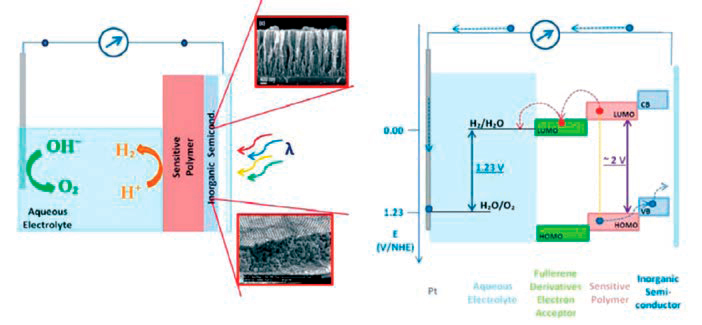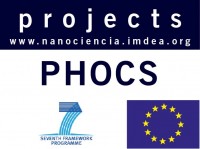PHOCS Photogenerated Hydrogen by Organic Catalytic Systems
Dr. Nazario Martin & Dr. Juan Luis Delgado
-
Funding : FP7-ENERGY-2012-1-2STAGE nº 309233
-
Duration: 2012 - 2015
-
48 months
Aim of the project “Photogenerated Hydrogen by Organic Catalytic Systems (PHOCS)” is the realization of a new-concept, photoelectrochemical system for hydrogen production, based on the hybrid organic/inorganic and organic/liquid interfaces. PHOCS takes the move from the recent demonstration of reduction/oxidation reactions taking place, under visible light and at zero bias, at the interface of an organic semiconductor and an aqueous electrolyte, obtained by the coordinator’s group. PHOCS intends to combine the visible-light absorption properties of organics, together with the enhanced charge transport capabilities of inorganic semiconductors, in order to build a hybrid photoelectrode for hydrogen generation. New organic donor and acceptor materials (conjugated polymers and fullerenes derivatives) will be synthesized, properly tuning HOMO-LUMO levels position and energy gap extent for semi-water splitting purposes. Final aim of PHOCS project is the realization of a solar-to-hydrogen energy conversion efficient device, as a tangible first step towards the new “organic water splitting” technology.

(Left) Schematic of the hybrid organic/inorganic water splitting system. The visible light sensitive polymer is put directly in contact to an aqueous electrolyte and coupled the nanostructured inorganic semiconductor electrode. (Right) Representative energy level diagram for the final hybrid, photoelectrolytic device.
http://nanociencia.imdea.org/images/nanociencia/scientific_reports/Scientific-Report-2013.pdf#page=76




